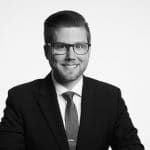Rebuilding climate regulation: What Biden probably will (and will not) accomplish
By Daniel J. Metzger | November 7, 2020
 Aerial view of Tongass National Forest. Credit: Alan Wu
Aerial view of Tongass National Forest. Credit: Alan Wu
In a speech in September Joe Biden described the “the undeniable, accelerating, and punishing reality of climate change.” He has promised that his administration will take on the problem. To get started, a Biden administration will have to undo many of President Trump’s deregulatory efforts over the past four years.
As promised, when Trump took office he quickly got to work aggressively dismantling Obama-era climate regulation. Over the past four years his administration has taken a dizzying spectrum of actions, large and small, to put business ahead of the environment.
President-elect Biden will undoubtedly begin reversing some of these actions as soon as he takes office. Some of Trump’s damage can be undone right away, but getting climate action fully back on track will take years.
Course correction. Climate change, in particular, has seemed to be a favorite target for the president’s scorn. His decision to leave the Paris Agreement took effect Wednesday, further confirming for the world that, so long as Trump remains in office, the United States will not take action—much less lead the way—to address climate change. A panoply of other steps taken at every level of federal government has made climate action a low priority at best and, in many instances, off-limits altogether.
For example, the Trump administration has undone federal regulations that limited the greenhouse gas emissions responsible for global warming. The White House has weakened rules mandating significant increases in fuel efficiency for motor vehicles, rules limiting short-lived climate “super-pollutants,” and rules that would have cut methane emissions from new power plants. At the same time, the administration has worked hard at propping up domestic fossil fuel production by expediting permits for pipelines, streamlining approvals for natural gas exports, and tweaking the way fossil fuel companies quantify the value of fuels extracted from public lands.
Alongside deregulatory actions with a direct impact on greenhouse gas emissions, the administration has sacrificed protections for natural places. Many of these actions plainly contradict Trump’s recent comment that “while I’m President, we will . . . preserve the stunning beauty of the American and the Americas and this nation.” In fact, his administration has opened roadless areas in Alaska’s Tongass National Forest (the world’s largest intact temperate rainforest) to logging, exposed vast and fragile parts of the Arctic National Wildlife Refuge to oil and gas development, relaxed protections for sage grouse habitat, and stymied agencies’ ability to address climate-change-driven threats to endangered species and their habitats.
The good news for the climate is that there is a lot that Biden can do to rebuild federal climate regulation. Earlier this fall my colleagues and I published a report outlining over 50 items a Biden administration can quickly get to work re-regulating.
A four-year plan. After his January 20 inauguration, Biden would likely take tangible steps immediately to reset federal policy on climate regulation. For starters, he can bring the United States back into the Paris Agreement—a stark reversal from Trump’s departure, but one that international observers are expecting.
He can also issue an Executive Order on Addressing the Climate Crisis revoking Trump’s own climate-denying orders and confirming that climate action is a priority for the federal government. Even though executive orders are usually not legally binding, they powerfully convey federal policy in way that sets expectations for business and can make it harder for states to push back. And by eliminating executive orders that were explicitly designed to prop up fossil-fuel interests and undermine climate regulation, Biden would give federal agencies a new set of priorities for enforcement actions, permitting decisions, resource allocation, and much more.
In the longer term, Biden administration officials would almost certainly get to work reinstating climate regulations that Trump removed and halting any ongoing work the departing administration does not finish. Rules governing fuel efficiency, power plant emissions, and super-pollutants are all likely targets for reregulation. Steps to restore protections for wilderness areas from oil and gas development are similarly good bets for prompt action by a Biden administration. But reversing agency actions is harder than revoking executive orders, and Biden may not be able to undo everything Trump has done—at least not in just four years.
Like Presidents Bush, Obama, and Trump on their first days in office, Biden would almost certainly put a freeze on agencies finalizing any then-pending rulemakings. Biden can direct his newly appointed heads of agencies to immediately withdraw Trump administration rules that were proposed but not finalized by January 20. Withdrawing those rules would not require Congressional approval.
Agency rules and regulations finalized under the Trump administration would take years to unwind. Repealing those rules requires the new administration to start over with the administrative process. Restoring the prior protections for the Tongass National Forest, for example, would begin by announcing the proposed change in the Federal Register. The Forest Service must then allow time for meaningful public comment, which is likely to produce a massive record of letters, emails, and petitions in favor of and opposed to the change. (In just 60 days of public comment Trump’s deregulation garnered about 267,000 comments and 11 petitions containing around 117,000 signatures.) Once those comments are received, the agency has to consider them, respond to any significant comments, and finally publish a new rule replacing or repealing what Trump put in place.
Such rollbacks would undoubtedly be challenged in court. And whether Biden’s efforts would hold up in court remains to be seen; the Supreme Court’s newly minted 6-3 conservative majority casts some doubt on how durable his reregulatory actions may be.
Alongside big-picture actions, officials in a Biden administration could take steps to restore neglected and disbanded scientific advisory committees, reissue withdrawn guidance documents that required agencies to assess climate impacts, appoint heads of agencies that make climate change a priority, and work to restore scientific integrity to agency decision-making.
In one key respect Biden probably would not reverse course: fostering domestic natural gas production, at least for a while longer. Biden has indicated that he would not ban all fracking, only new permits and leases on federal land. In some states Biden’s partial ban would almost completely stop new fracking; in others it would do virtually nothing.
Back on track. Given everything that Trump has done to dismantle climate regulation, restoring the status quo before he took office would be a great success for Biden. The Obama administration did not have a perfect record on climate, but undoing Trump’s deregulatory efforts would be a significant and necessary step toward mitigating against the worse impacts of climate change.
Still, Biden could go further than just retreading Obama-era regulations. Even if a still-divided Congress makes it impossible to pass new legislation, Biden can take major steps forward under the existing laws.
Among the myriad potential actions his administration could take, Biden could adopt subsidy and crop insurance policies that encourage storing more carbon in soils, issue stricter energy efficiency standards across many sectors of the economy, fund research into negative carbon technologies, and take back a leading role in international efforts to combat climate change. And if passing new legislation were to become possible in the event of an evenly split Senate after runoff elections in Georgia, or with a reconstituted Congress after the 2022 election, a spectacular array of sensible and ambitious climate measures might be within reach.
Together, we make the world safer.
The Bulletin elevates expert voices above the noise. But as an independent nonprofit organization, our operations depend on the support of readers like you. Help us continue to deliver quality journalism that holds leaders accountable. Your support of our work at any level is important. In return, we promise our coverage will be understandable, influential, vigilant, solution-oriented, and fair-minded. Together we can make a difference.
Keywords: climate change, election, reregulation
Topics: Climate Change, Opinion
















It is likely that not much will happen on climate change in the next several years. Biden in his victory speech laid out 5 priorities. Climate change was last on that list. It is very hard for any administration to address two problems at the same time-. It is impossible to address five. The political capital will be spent on fighting a pandemic and economic recovery. The other factor is the Supreme Court now has several constitutionalists. They follow the Constitution and oppose conservative and liberal imperial Presidential actions–be it Obama, Trump or Biden. They do not look kindly on… Read more »